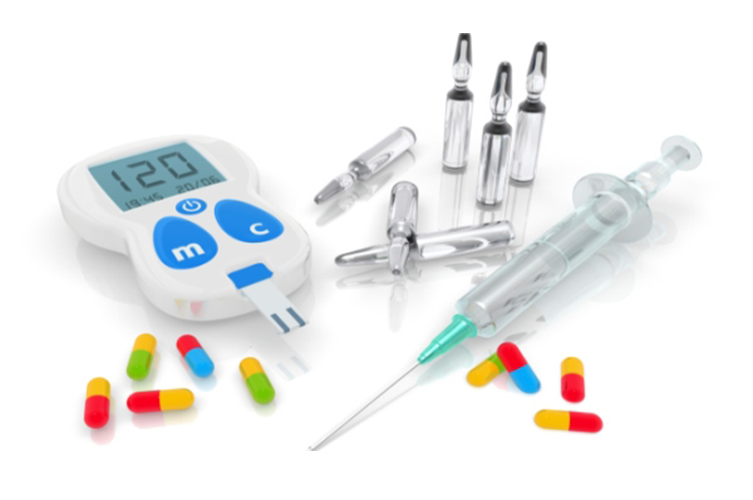
Exploring the Benefits of Diabetic Profile Test
Regular health check-ups and screenings play a crucial role in maintaining our overall well-being. Among the various screenings available, the Diabetic Profile Basic Test holds significant importance, especially for individuals at risk of developing diabetes. This comprehensive test, which includes lipid profile, liver function tests, iron deficiency profile, kidney profile, thyroid function tests, electrolytes, and diabetic screening, aids in the early detection and management of both Type 1 and Type 2 diabetes. In this article, we will explore the benefits of the Diabetic Profile Test and how it can help individuals lead healthier lives.
Early Detection
One of the primary advantages of the Diabetic Profile Test is its ability to detect diabetes in its early stages. Early detection is crucial as it allows for prompt intervention and lifestyle modifications, potentially preventing the progression of the disease. By measuring fasting blood glucose levels and glycosylated haemoglobin (HbA1c) levels, the test can identify elevated blood sugar levels, providing an early warning sign of diabetes. With early detection, individuals can take proactive steps to manage their
blood sugar levels through diet, exercise, and medication, thereby reducing the risk of complications associated with diabetes.
Risk Assessment
The Diabetic Profile Test not only helps in the detection of diabetes but also assesses the risk factors associated with its development. By evaluating various parameters, such as lipid profile, liver function tests, kidney profile, and thyroid function tests, the test provides valuable insights into an individual`s overall health status. Abnormalities in these parameters can indicate an increased risk of developing diabetes. For example, elevated levels of total cholesterol, low-density lipoprotein (LDL) cholesterol, and triglycerides, along with decreased levels of high-density lipoprotein (HDL) cholesterol, can be indicators of insulin resistance and an increased risk of Type 2 diabetes. By identifying these risk factors, individuals can make necessary lifestyle modifications and seek medical guidance to mitigate their risk.
Comprehensive Health Assessment
The Diabetic Profile Test is not limited to diabetes screening alone. It offers a comprehensive health assessment by evaluating various organ functions and essential parameters. The lipid profile measures cholesterol levels, which are essential for cardiovascular health.
Liver function tests assess liver enzyme levels, indicating liver health and any potential liver disorders. Iron deficiency profile evaluates iron levels in the body, as iron plays a crucial role in red blood cell production. The kidney profile measures parameters like blood urea nitrogen (BUN), creatinine, and estimated glomerular filtration rate (eGFR), providing insights into kidney function. Thyroid function tests assess the functioning of the thyroid gland, which plays a vital role in metabolism and hormone regulation. Lastly, electrolyte levels are evaluated to ensure the proper functioning of cells and organs. Thus, the Diabetic Profile Test offers a comprehensive assessment of an individual`s overall health, helping in the early detection of various medical conditions.
Prevention of Complications
Effective management of diabetes is crucial to prevent complications that can arise from uncontrolled blood sugar levels. By detecting diabetes early and monitoring key parameters, the Diabetic Profile Test helps individuals take preventive measures and reduce the risk of complications. Complications associated with diabetes include heart disease, stroke, kidney disease, nerve damage, and eye problems. Regular screenings, such as the Diabetic Profile Test, aid in the early identification of these complications or their risk factors, allowing healthcare professionals to intervene promptly and implement necessary preventive measures. For instance, managing blood sugar levels,
cholesterol, and blood pressure within the target range significantly reduces the risk of cardiovascular complications. Regular kidney profile testing enables the early detection of kidney dysfunction, facilitating timely interventions to preserve kidney function.
Personalized Treatment Approach
Every individual is unique, and their response to diabetes treatment may vary. The Diabetic Profile Test helps in developing a personalized treatment approach tailored to an individual`s specific needs. By evaluating various parameters, such as blood glucose levels, lipid profile, and kidney function, healthcare professionals can determine the most appropriate treatment plan for each individual. This personalized approach ensures that individuals receive the right medications, lifestyle recommendations, and support to manage their diabetes effectively. Regular monitoring through the Diabetic Profile Test also enables healthcare providers to make necessary adjustments to the treatment plan, ensuring optimal glycemic control and reducing the risk of complications.
The
Diabetic Profile Test offers numerous benefits, making it an essential screening for individuals at risk of developing diabetes. Its ability to detect diabetes in its early stages, assess risk factors, and provide a comprehensive health assessment empowers individuals to take proactive steps towards managing their health. By facilitating early intervention and personalized treatment, the Diabetic Profile Test helps individuals lead healthier lives and reduces the risk of complications associated with diabetes. Regular screenings and proactive management play a vital role in maintaining overall well-being, and the Diabetic Profile Test is an invaluable tool in achieving this goal. Prioritizing regular screenings and early detection can positively impact the lives of individuals, ensuring they stay healthy and lead fulfilling lives. Read more blog related:
Diabetic Profile Test